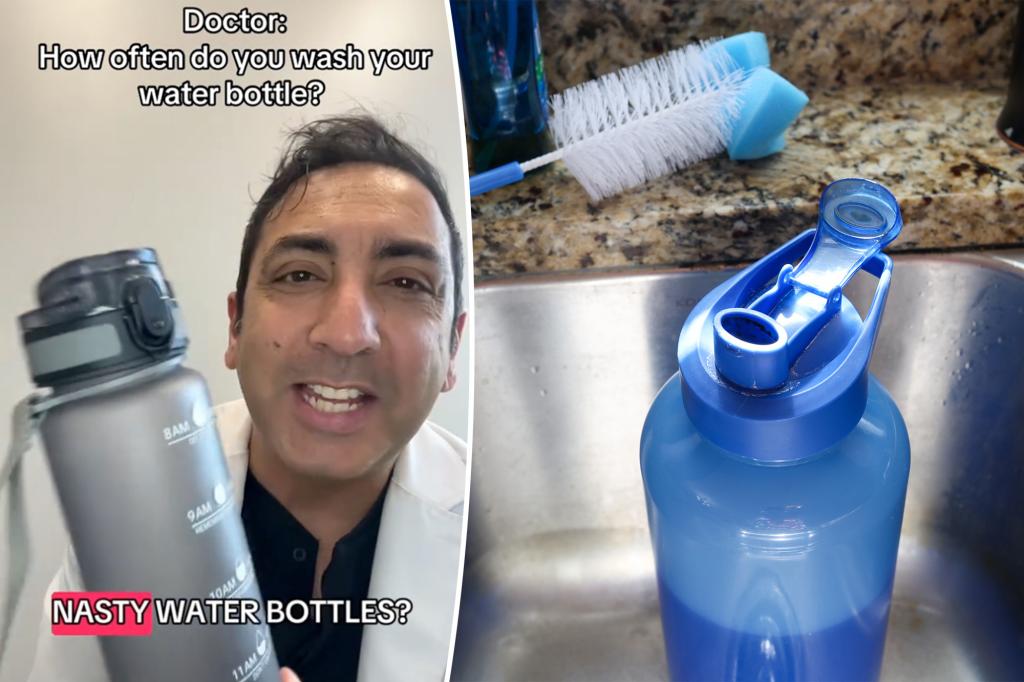Dr. Jason Singh, a primary care physician in Virginia, has raised concerns about the lack of proper cleaning of water bottles to prevent bacterial growth. He emphasized that neglecting to wash water bottles regularly can lead to the transfer of harmful bacteria from the oral microbiome to the bottle’s ecosystem each time a person takes a drink. Research shows that microorganisms can form a biofilm on the surface of a water bottle within as little as 48 hours, creating a community where bacteria can communicate and spread infection.
Biofilms, which can be beneficial, harmful, or neutral depending on the type of bacteria, are responsible for the majority of human infections. They are commonly found on medical devices such as catheters, pacemakers, and heart valves. Studies have shown that reusable water bottles can harbor significantly more bacteria than the average toilet seat, making it crucial to clean them regularly to prevent the build-up of biofilms that can lead to illness.
According to Dr. Singh, it is recommended to wash water bottles with soap every two days to disrupt the biofilms that may be present. Using hot water, soap, and a bottle brush can help to remove any bacteria or biofilm that has accumulated in the bottle, allowing it to dry completely before using it again. Other experts suggest washing water bottles daily if they are used regularly and at least once a week as a minimum to prevent bacterial growth.
University of Alabama at Birmingham biologists recommend using hot water and dish soap to scrub both the interior and exterior surfaces of water bottles to remove any bacteria that may be hiding. Additionally, using a bleach solution or a commercial sanitizer meant for food contact surfaces can help to kill any residual bacteria or mold. Properly cleaning water bottles is essential to maintaining good hygiene and preventing the spread of illness.
It is not only essential to clean water bottles regularly but also to pay attention to other sources of water consumption, such as faucet heads. Researchers from Tufts University have found that soaking faucet heads for five minutes in hot water can effectively remove E. coli bacteria. Proper cleaning of all water sources, including water bottles and faucet heads, is crucial in maintaining good health and preventing the spread of infections. Taking the time to properly clean these items can greatly reduce the risk of bacterial contamination and promote overall well-being.















